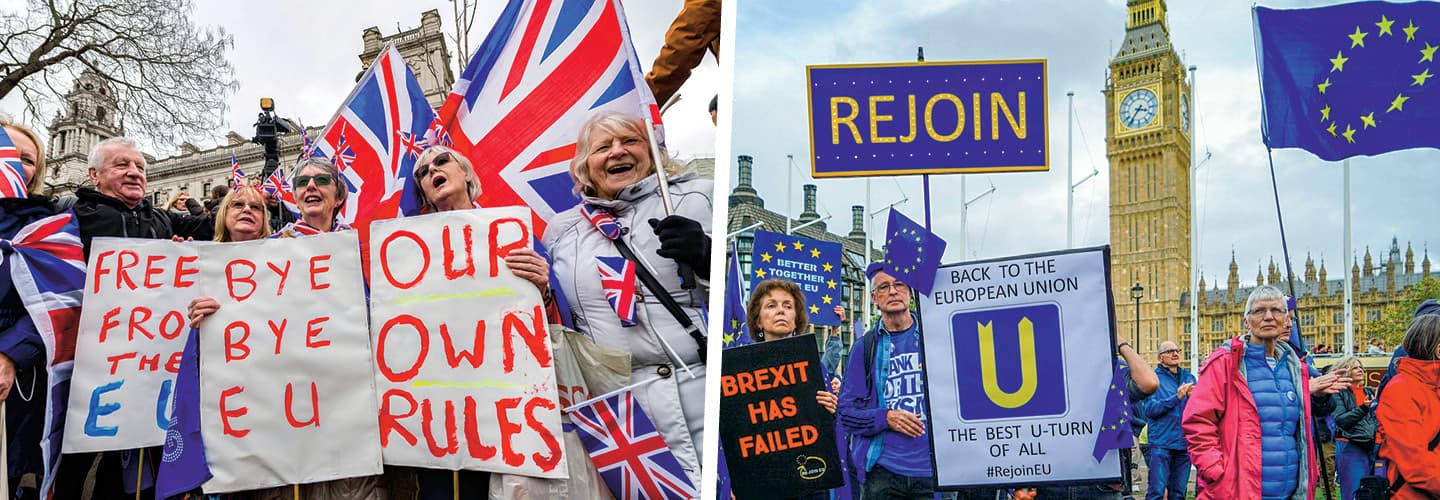For 40 years, Sarah Pettitt’s farm in eastern England produced bumper crops of vegetables—thanks largely to a steady stream of workers from Eastern Europe who kept the farm running. But when Brexit—the United Kingdom’s departure from the European Union—took effect in 2021, new migration rules kicked in, and Pettitt had a hard time finding the labor she’d long depended on.
Pettitt was forced to cut her farm’s production by 20 percent.
“If you can’t get people to come and harvest it, you’re not going to take your pound notes out of your back pocket and chuck them in the fire,” she says, referring to the British equivalent of dollar bills.
More than two years after Brexit took full effect, the economic repercussions for the U.K. are becoming clearer. A recent report by the Office for Budget Responsibility found that Brexit had a “significant adverse effect” on British trade. In December, when the British Chambers of Commerce surveyed British businesses about Brexit, more than half said they were finding it hard to adapt to the new trade rules. The International Monetary Fund predicts the U.K. will be the world’s only major economy to shrink in 2023.
For 40 years, Sarah Pettitt’s farm in eastern England produced large crops of vegetables. A steady stream of workers from Eastern Europe kept the farm running. But Brexit—the United Kingdom’s departure from the European Union—changed things. When it took effect in 2021, new migration rules kicked in. Suddenly, Pettitt had a hard time finding the labor she’d long depended on.
Pettitt was forced to cut her farm’s production by 20 percent.
“If you can’t get people to come and harvest it, you’re not going to take your pound notes out of your back pocket and chuck them in the fire,” she says, referring to the British currency.
More than two years after Brexit took full effect, its economic impact on the U.K. is becoming clearer. A recent report by the Office for Budget Responsibility found that Brexit had a “significant adverse effect” on British trade. In December, the British Chambers of Commerce surveyed British businesses about Brexit. At the time, more than half of them said they were finding it hard to adapt to the new trade rules. The International Monetary Fund predicts the U.K. will be the world’s only major economy to shrink in 2023.

